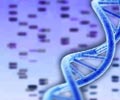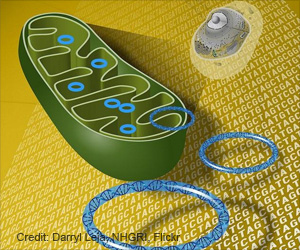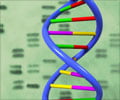Genetic tests can identify specific traits in learning like memory and learning ability which can be used to identify the best method of teaching.

- Gene patterns that govern learning abilities like memory and reaction time were identified by a research team from the University of Sussex .
- This will aid the teacher in providing the best method of teaching, which will in turn enhance learning.
- The individual will enjoy learning and their individual talent will be tapped.
Educational genomics is set to revolutionize teaching methodologies and could soon prove to be the best method of learning assessment. In a classroom, whether it is in a school or in college, it soon becomes apparent that not all the students are ‘tuned’ to excel equally well in their academic pursuit. Moreover, some students may seem more inclined to study maths while others could pursue history. This is something that teachers identify early on as they spend time to teach the different students in their class.
Every individual has a completely different style of learning, which could either be from their own sense of learning or it could have been inculcated at a very young age.
There are many different learning methodologies and individual student preferences may vary.
- Some students would prefer group learning, where they get to sit with their classmates and discuss important topics in the subject being learned.
- Some students need peace and calm, with no one else around to learn key topics well.
- Certain others would prefer to learn by doing tasks, rather than reading just the theory about it. These people are focused more on application about the mechanisms that could dictate the action.
Recent studies have shown that every individual is hardwired to behave differently in a classroom and learn based on the genes that are in the individual. This has opened the doorway for educational genomics, which is a new field but which is expected to expand exponentially. It can be used to study certain innate traits associated with education like learning ability, reaction time, memory and academic achievement.
Tapping the Students Potential
Dr. Darya Gaysina from The University of Sussex published an article in The Conversation, detailing how educational genomics could aid students by tapping their potential. Dr. Gaysina said “One day, genomics could enable educational organizations to create tailor-made curriculum programs based on a pupil’s DNA profile.”
The data obtained from genetic studies should not be treated as the sole determinant of a students’ ability to excel as there is an interplay of genetics as well as environmental factors that cater to expression of certain character traits. It should be used as a guiding light, to which the right resources and environmental determinants can be used to enhance learning.
As Dr. Gaysina further states the importance of the child’s environment in learning - “Educational genomics aims to uncover this complex relationship – to look at how the genome works in different environments. This information will then help researchers to understand how this interplay affects brain and behavior across the life of a person.”
The key to better educational system could be in determining the educational genomics of an individual. This style will infuse a sense of belonging and would not result in penalization. It will suit the specific needs of the patient and will not hamper the joys of learning.
Personalized Genomics
Personalized genomics has risen rapidly over the past few years and genetic foot prints have been identified for various diseases, especially for cancer. These genetic signatures are used for
- Identification of highly aggressive forms of cancer
- Determining the best method of treatment
- Identifying recurrence risk of the cancer
- Discerning cancer from non-cancerous growth
Such genetic testing is now routinely used for breast cancer where chemotherapy is recommended for people with certain gene signature while it might not be necessary for people with certain other gene footprints. This has revolutionized medical care and aided in better recovery.
The use of such genetic studies in the field of education would further enhance the benefits afforded by this system. It would provide individual specific care which can be rated better than identifying strengths using other testing methods, including psychological testing.
The genetic parameters can be used to identify the strength of an individual and to utilize this knowledge in training the individual appropriately. This will make learning fun, enjoyable and would aid in nurturing nature.
References
- Genetics could help teachers tailor learning to individual students - (https://www.geneticliteracyproject.org/2016/12/05/genetics-help-teachers-tailor-learning-individual-students/)
Source-Medindia









